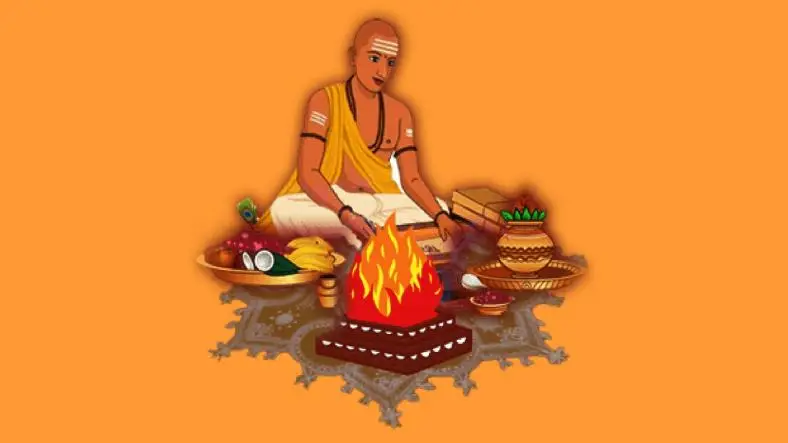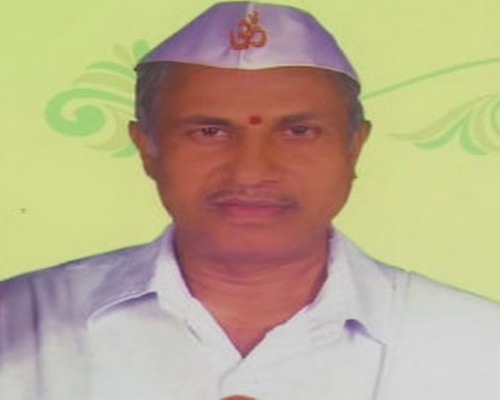Vedic rituals and sacrifices, also called yajnas, are key practices in Vedic religion and Hinduism. They have their roots in ancient Vedic texts and involve elaborate ceremonies intended to honor gods, keep the universe in balance and achieve both spiritual and worldly goals. This article explains what Vedic rituals are, their purposes, how they are performed and why they are important in Vedic traditions.
Purpose of Vedic Rituals and Sacrifices
Maintaining Cosmic Order (Rta)
- Cosmic Balance:
- One of the main goals of Vedic rituals is to maintain cosmic harmony, known as rta.
- These rituals are done to align humans with divine laws, ensuring the balance and order of the universe.
- Divine Favor:
- Performing rituals correctly is believed to attract divine blessings, which are needed to keep both natural and social systems running smoothly.
Personal and Social Benefits
- Material Success:
- Some rituals are meant to bring material benefits, like wealth, good health, or success.
- People offer sacrifices to the gods to get help with their goals in life.
- Spiritual Development:
- Rituals also help individuals grow spiritually.
- They teach discipline, self-control and devotion, which contribute to personal spiritual progress and the ultimate goal of liberation (moksha).
Types of Vedic Rituals and Sacrifices
- Yajnas (Sacrificial Rites)
- Yajnas are the main rituals in the Vedic tradition, where offerings are made to gods through fire.
- They come in various forms and are meant to bring divine help and maintain universal order.
- This involves offering materials like ghee (clarified butter), grains and soma (a sacred drink) into a holy fire, which is believed to carry the offerings to the gods.
- Soma Yajna
- Soma Yajna is a special type of yajna where the sacred drink soma is offered.
- The ritual is performed with chanting of hymns and mantras.
- Soma Yajnas are conducted to please the deity Soma and to gain spiritual and physical benefits, symbolizing the connection between the divine and earthly realms.
- Agnihotra
- Agnihotra is a daily fire ritual performed at sunrise and sunset, where specific materials are offered into the fire while chanting hymns.
- It is believed to purify the surroundings, promote good health and align the person with the natural rhythms of day and night.
- Purnamasa Yajna
- This is a ritual performed during the full moon, involving the offering of a complete meal into the sacrificial fire.
- The Purnamasa Yajna is performed to maintain cosmic order and bring prosperity to the community.
- Rajasuya
- A grand sacrifice performed by kings to prove their authority and legitimacy.
- It involves elaborate offerings and rituals.
- Ashvamedha:
- A horse sacrifice done by kings to display their power and expand their territory.
- A consecrated horse is released to roam and later sacrificed.
Components of Vedic Rituals
- Preparation and Purification
- Ritual Purity: Before performing rituals, participants undergo a purification process, which may include physical cleansing and preparing mentally.
- Sacred Space: The area for the ritual is prepared and consecrated carefully, following strict guidelines to ensure its sanctity.
- Recitation of Hymns
- Mantras and Chants: Vedic rituals include chanting of hymns (mantras) from the Vedas in specific rhythms and tones, which are believed to enhance the power of the ritual.
- Role of Priests: Specialized priests, each with specific roles, perform the chants and oversee the rituals.
- Offerings and Ritual Fire
- Types of Offerings: Items such as ghee, grains and soma are offered during the rituals with specific prayers and intentions.
- Sacrificial Fire: Fire is central to the ritual as it is considered the link between the human and divine realms. The offerings are believed to reach the gods through the fire.
- Completion and Benedictions
- Concluding Rituals: After the main ritual, closing prayers are performed to seek blessings and thank the gods.
- Prasad Distribution: After the ritual, the remaining offerings, called prasad, are shared with the participants as a sacred gift.
Significance and Impact
- Preservation of Tradition
- Cultural Heritage:
- Vedic rituals are important for maintaining ancient traditions and practices.
- They keep the connection between humans and the divine alive.
- Religious Practices: These rituals serve as the foundation for many Hindu festivals and ceremonies, showing their lasting significance.
- Cultural Heritage:
- Philosophical and Spiritual Insights
- Symbolism: The rituals represent deeper philosophical ideas, such as the relationship between the divine and human realms and the importance of maintaining cosmic order.
- Spiritual Discipline: Performing these rituals helps individuals develop discipline and devotion, which contributes to ethical living and spiritual progress.
Conclusion
Vedic rituals and sacrifices are essential aspects of Hindu spirituality. Through these rituals, practitioners aim to keep the universe in balance, seek blessings from the gods and achieve both personal and communal benefits. The complexity of these rituals reflects the rich depth of Vedic thought and their practice continues to be an important part of Hindu religious life and cultural heritage.















